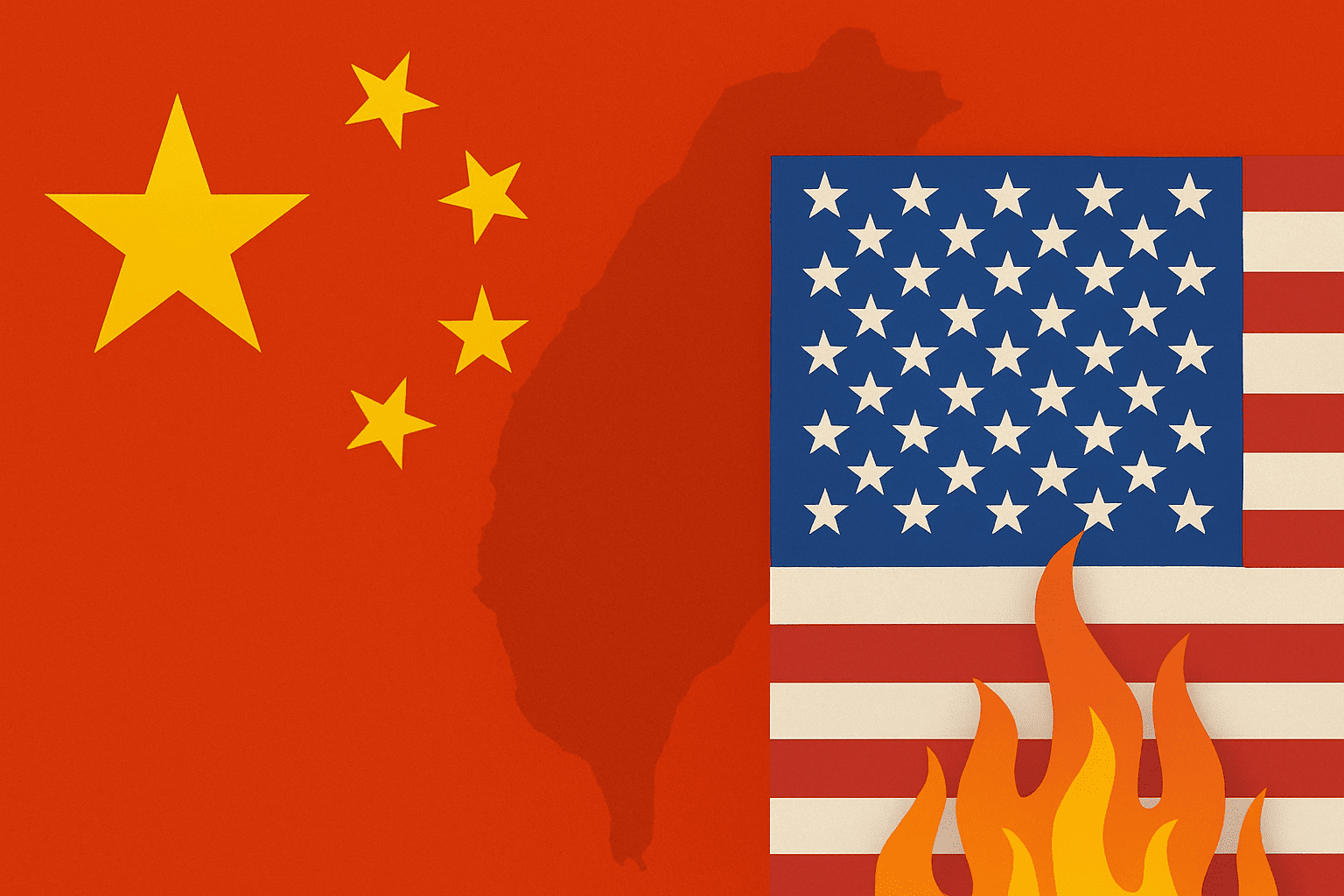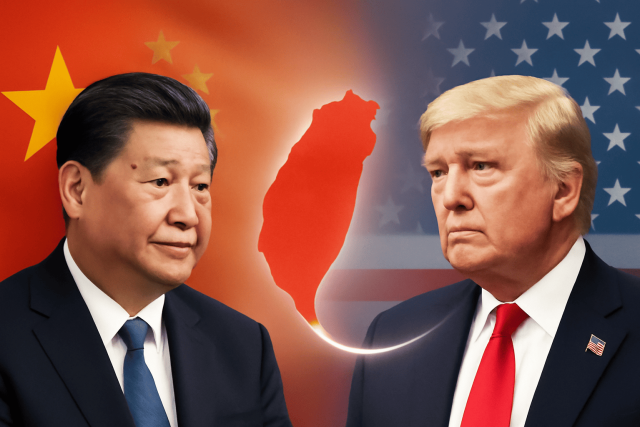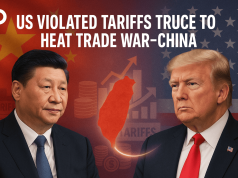In a harsh response, China accused the US Defense Secretary Pete Hegseth on Sunday of trying to “sow division” in Asia after the Pentagon Chief claimed Beijing was preparing an invasion of Taiwan and presented an “imminent” threat to the region.
Beijing was “credibly preparing to potentially use military force to alter the balance of power in the Indo-Pacific region,” according to Hegseth’s statement on Saturday. Further, he went on to say that any attempt to invade Taiwan would have disastrous consequences.
Hegseth stated at the Shangri-La Dialogue security conference in Singapore that there is no need to sugarcoat it; the threat the Chinese pose is real and could be forthcoming. After warning of the tangible and potentially looming danger posed by China, the Secretary of Defense urged partners in the Asia-Pacific zone, especially Australia, the US’s crucial security ally, to increase defense spending.
Beijing accused Washington of using offensive weapons in the South China Sea and escalating tensions in the region, labeling the US a “true destabilizing force in the Asia-Pacific.
In a statement released on Sunday, Beijing’s foreign ministry claimed that Hegseth had “vilified China with defamatory allegations.” It then cautioned that the United States “should not play with fire” on Taiwan. Hegseth’s words were provocative and meant to cause conflict.
The ministry stated, “China has strongly protested to the US and regrets and firmly opposes them.” As the two countries continue to engage in an intensifying trade war, tensions between Beijing and Washington are building as a result of the verbal sparring match. Donald John Trump, the US President, accused China on Friday of breaking a trade truce recently agreed.
Australia Condemns the Chinese Criticism of Hegseth
Despite the 1949 civil war that caused Taiwan to break away from China, Beijing views the 23-million-person self-governing island as its “sacred territory” and hasn’t ruled out using force to retake it.
China’s criticism of Hegseth was met with resistance from Australia. Richard Marles, China’s defense minister, stated on Sunday that the country has shown “the single biggest increase in military capability and buildup in a conventional sense by any country since the end of World War II.”
The People’s Republic of China, which for the first time in several years did not send its defense minister to the defense conference, stated on Saturday that it has deployed “combat readiness patrols” near the disputed Scarborough Shoal in the South China Sea.
In the South China Sea, Manila and Beijing dispute sovereignty over several islands and atolls, and their coast guards are increasingly clashing as they compete to monitor the waterways.

Beijing also denied US allegations that maritime navigation was in danger, stating that it has consistently supported diplomatic efforts to resolve regional conflicts and protect its territorial rights within the framework of international law.
According to the statement, “the United States is the biggest factor undermining peace and stability in the South China Sea.”
In another development, the future of South Korea’s foreign policy and its partnership with the United States is at stake as South Koreans prepare to cast their ballots in a snap presidential election that could alter Seoul’s defense budget and its approach to a potential Taiwan dispute.
South Koreans are going to the polls on Tuesday to elect a successor to Yoon Suk-yeol, with Lee Jae-myung of the center-left Democratic Party of Korea broadly expected to win by a comfortable margin.









